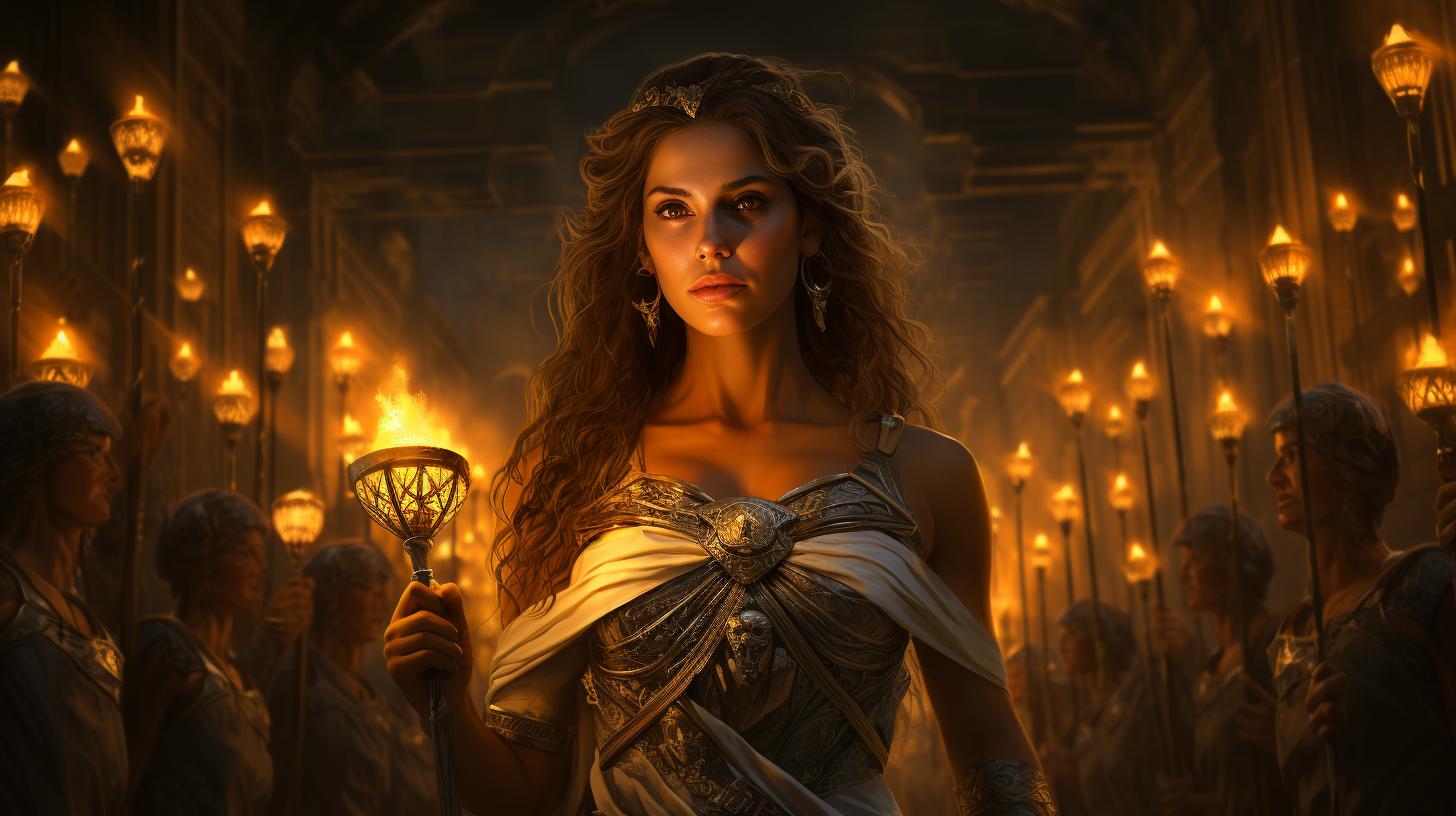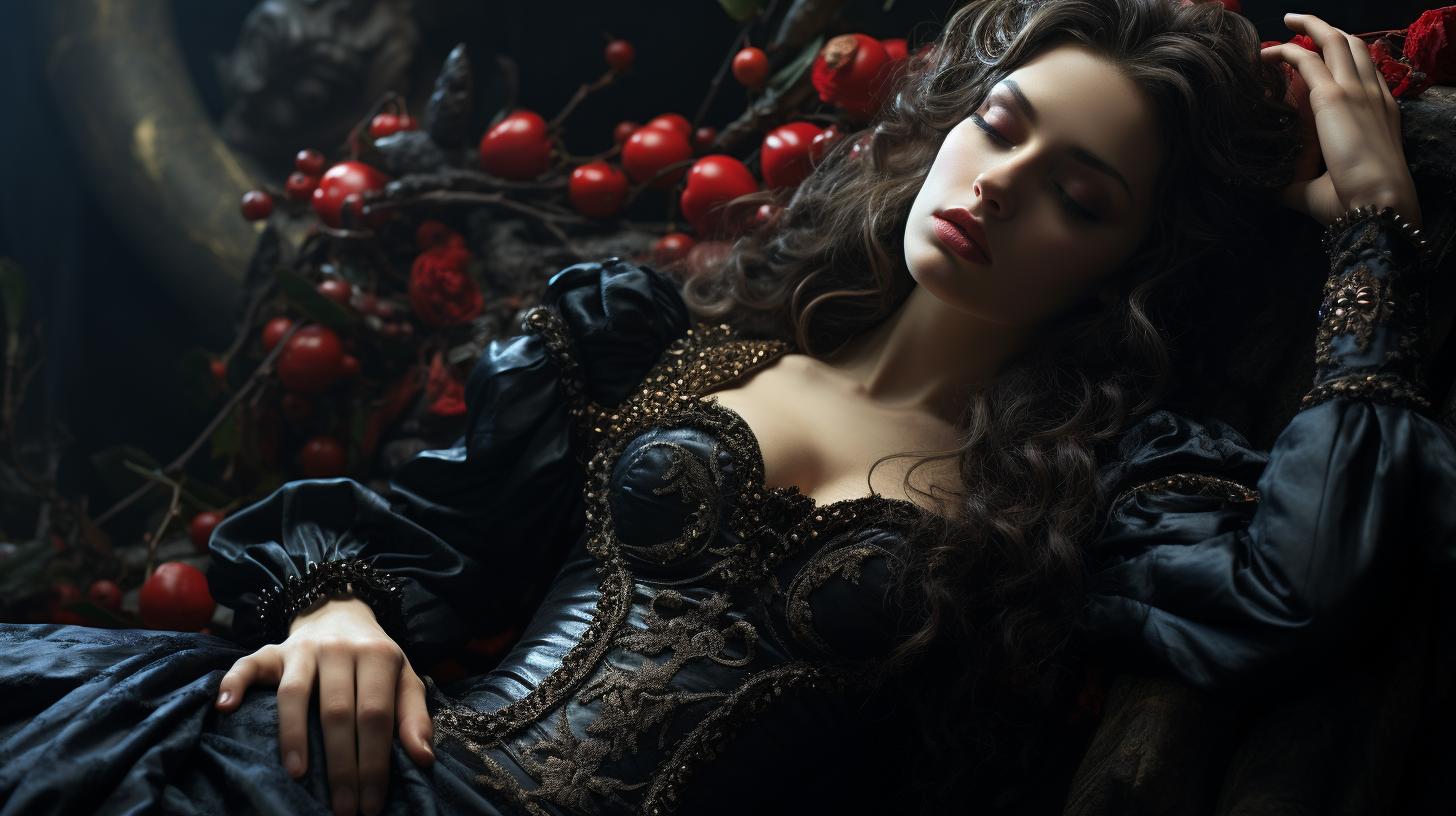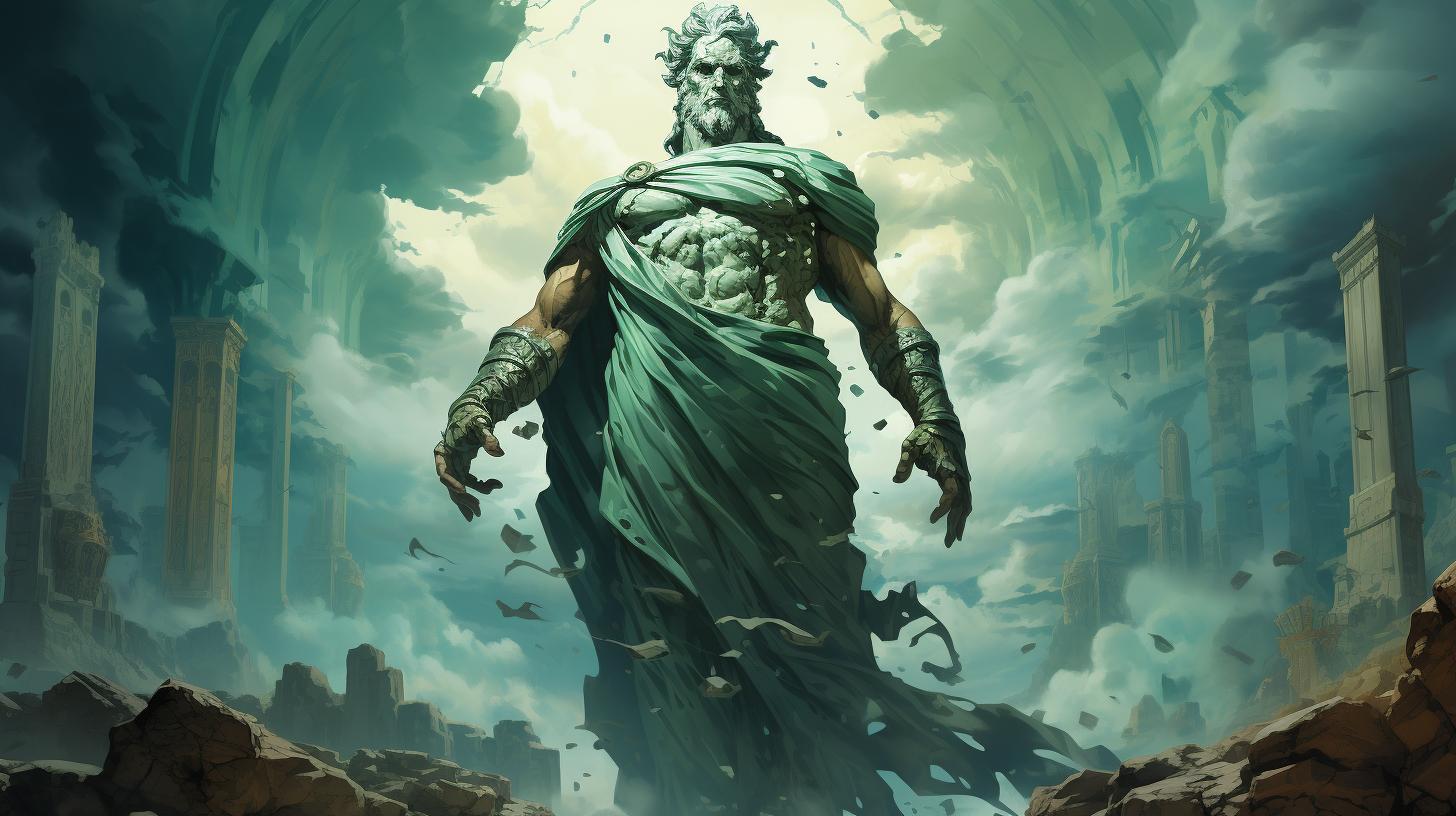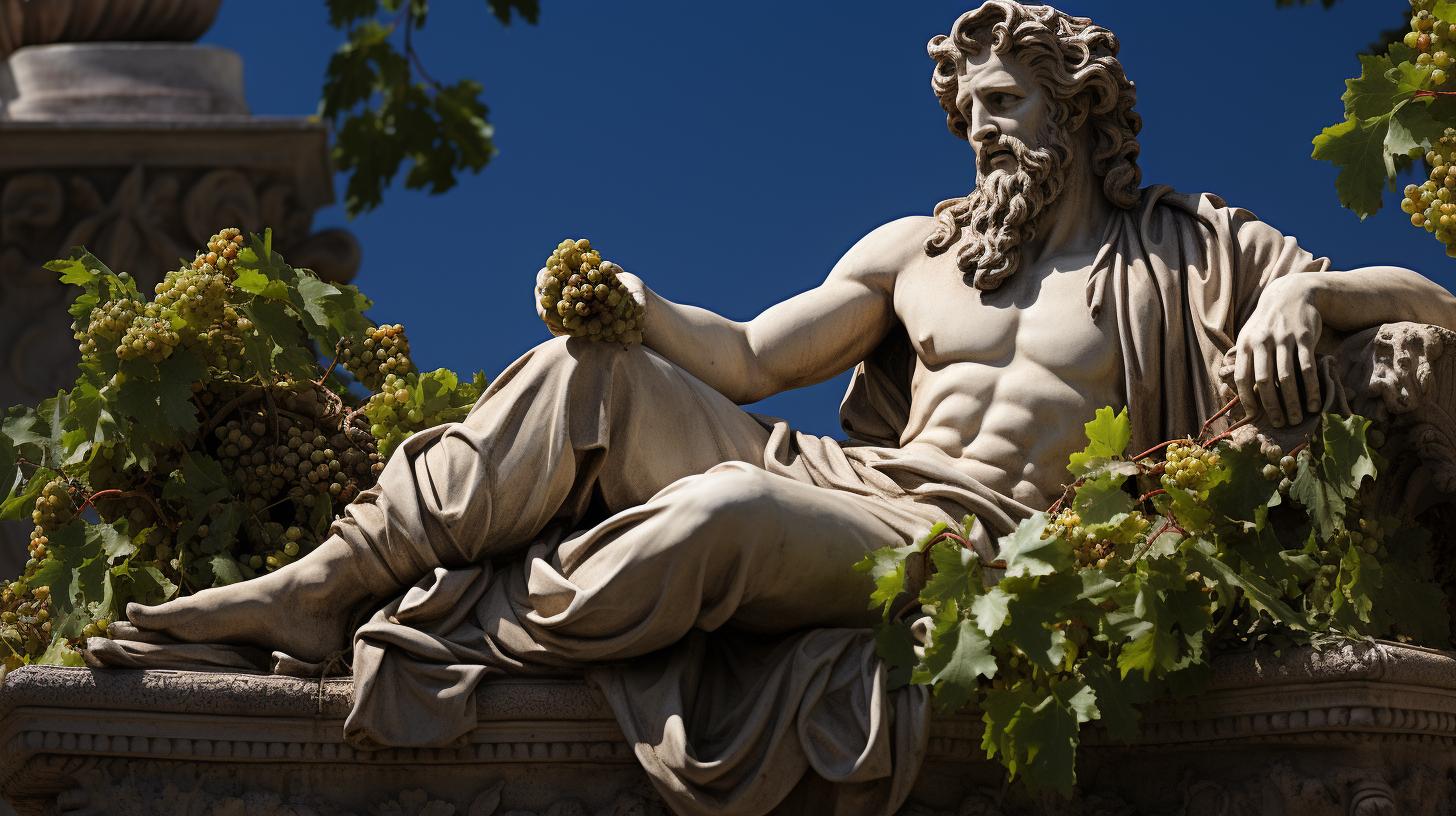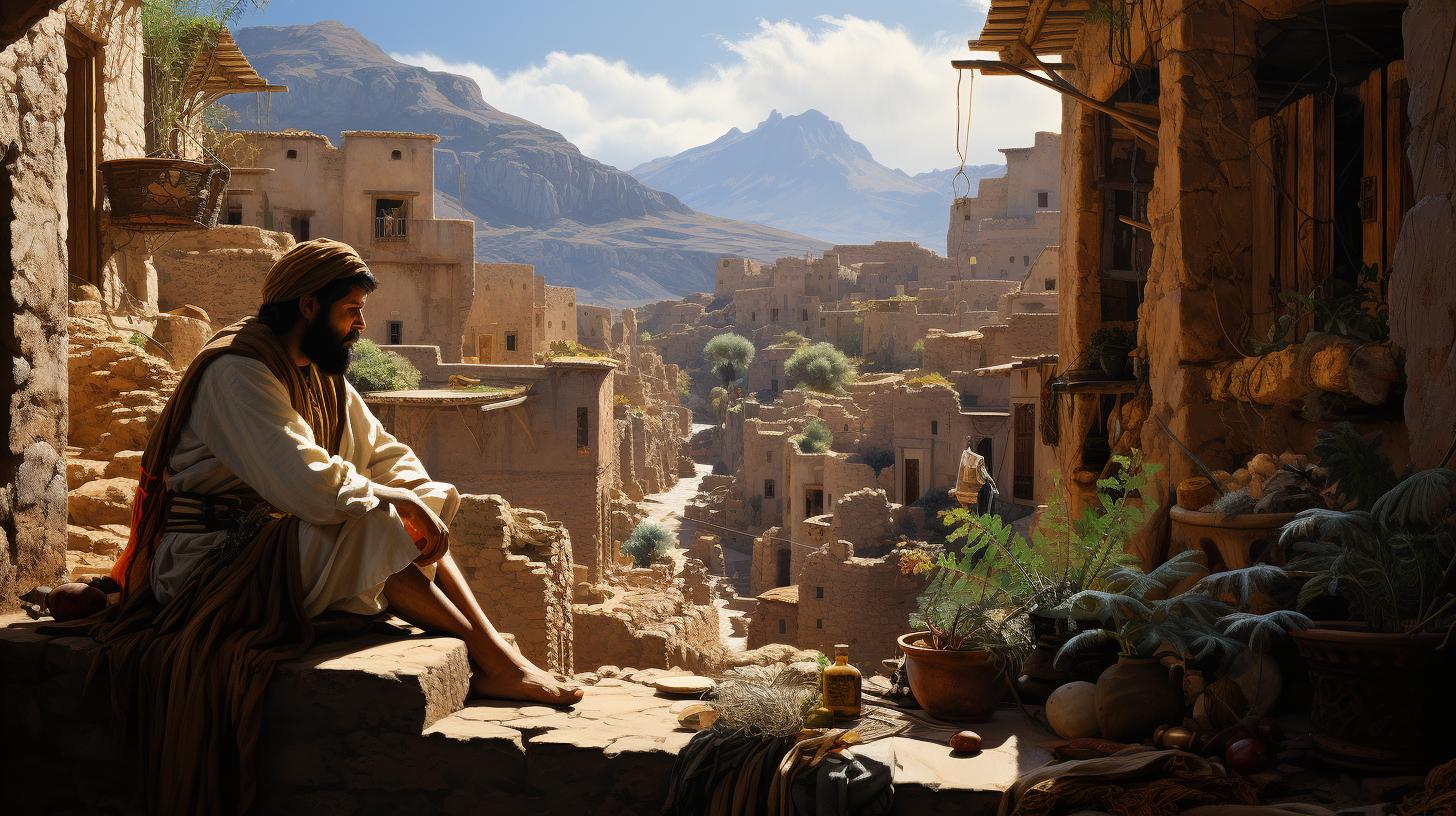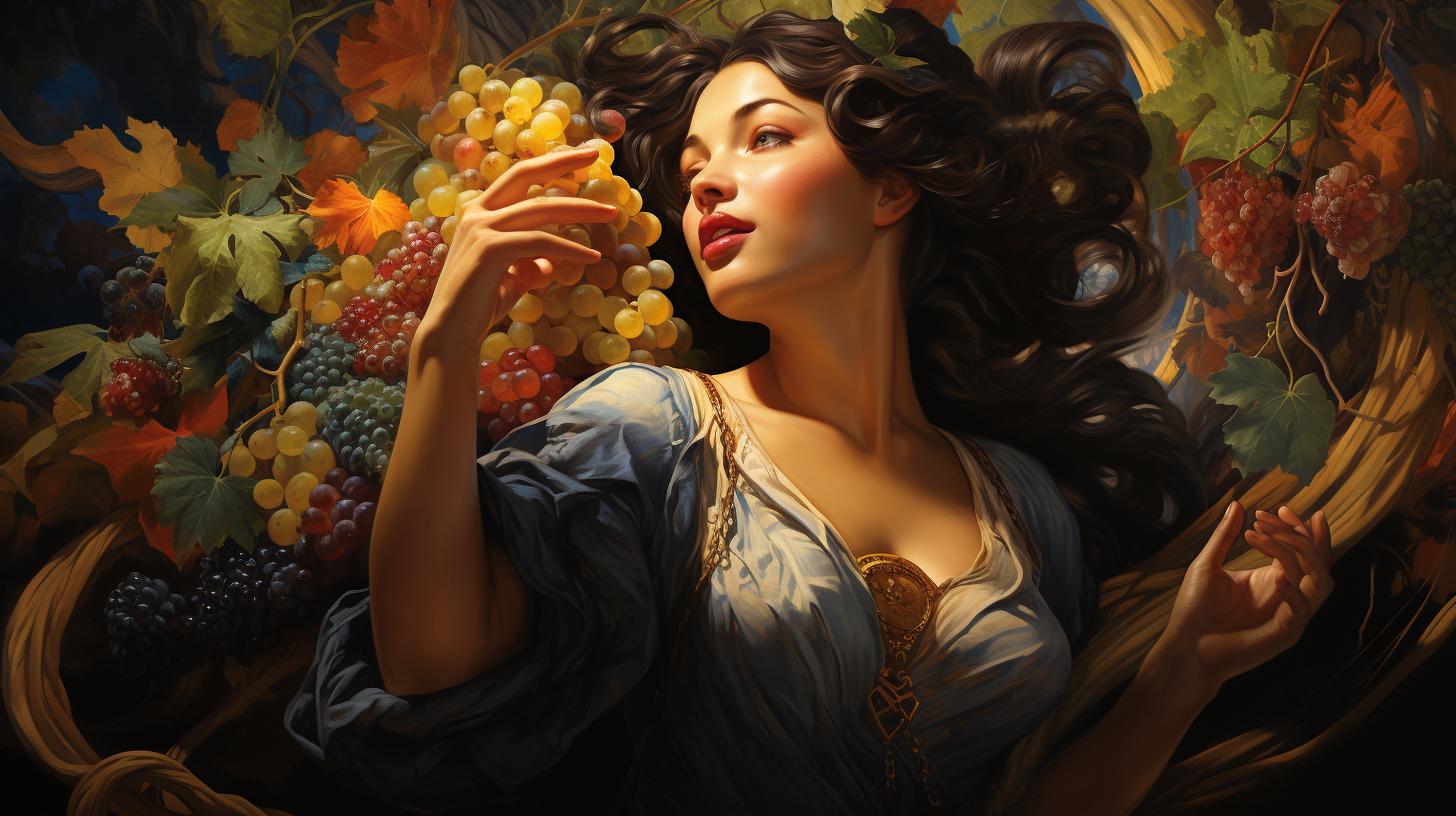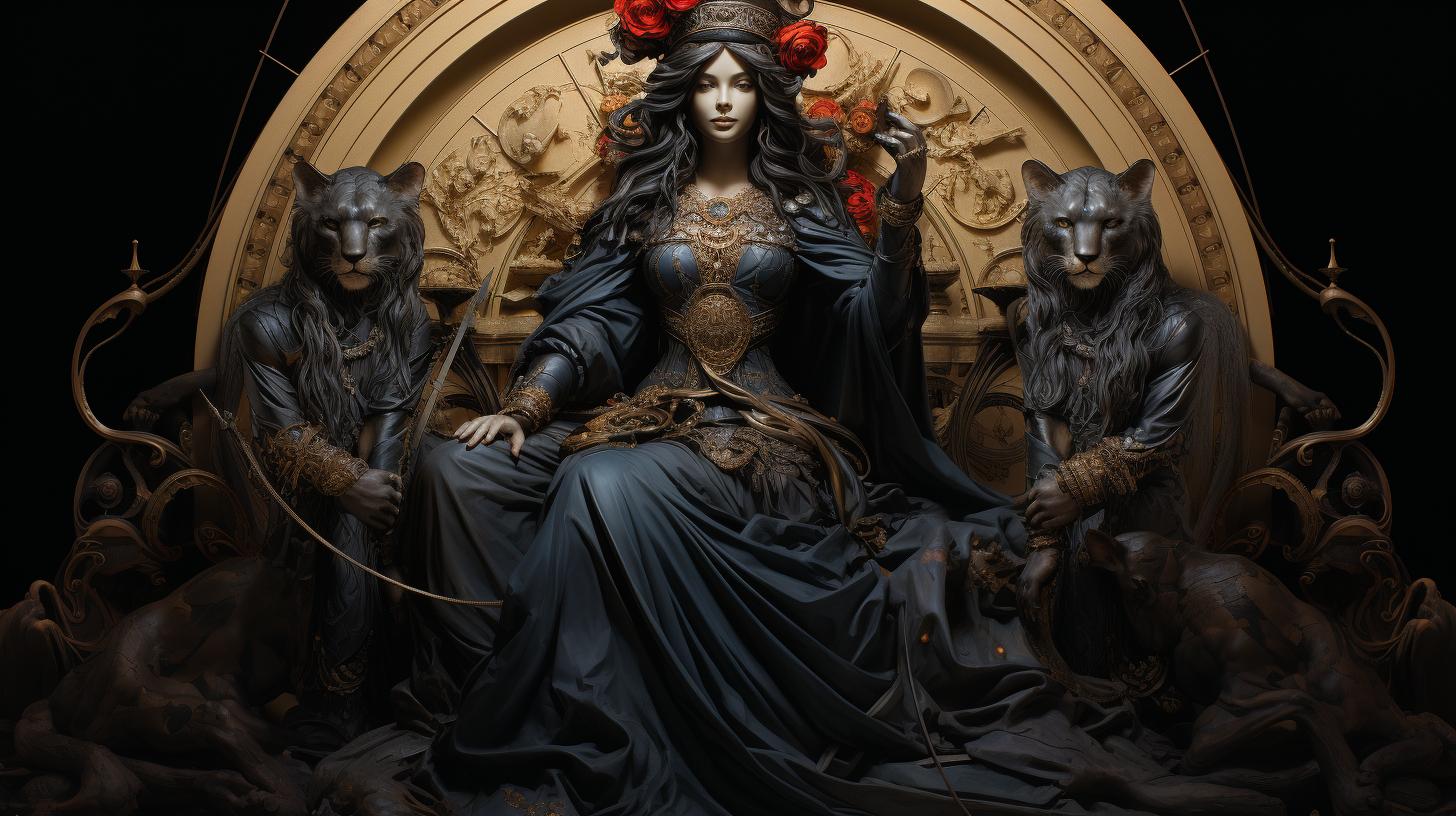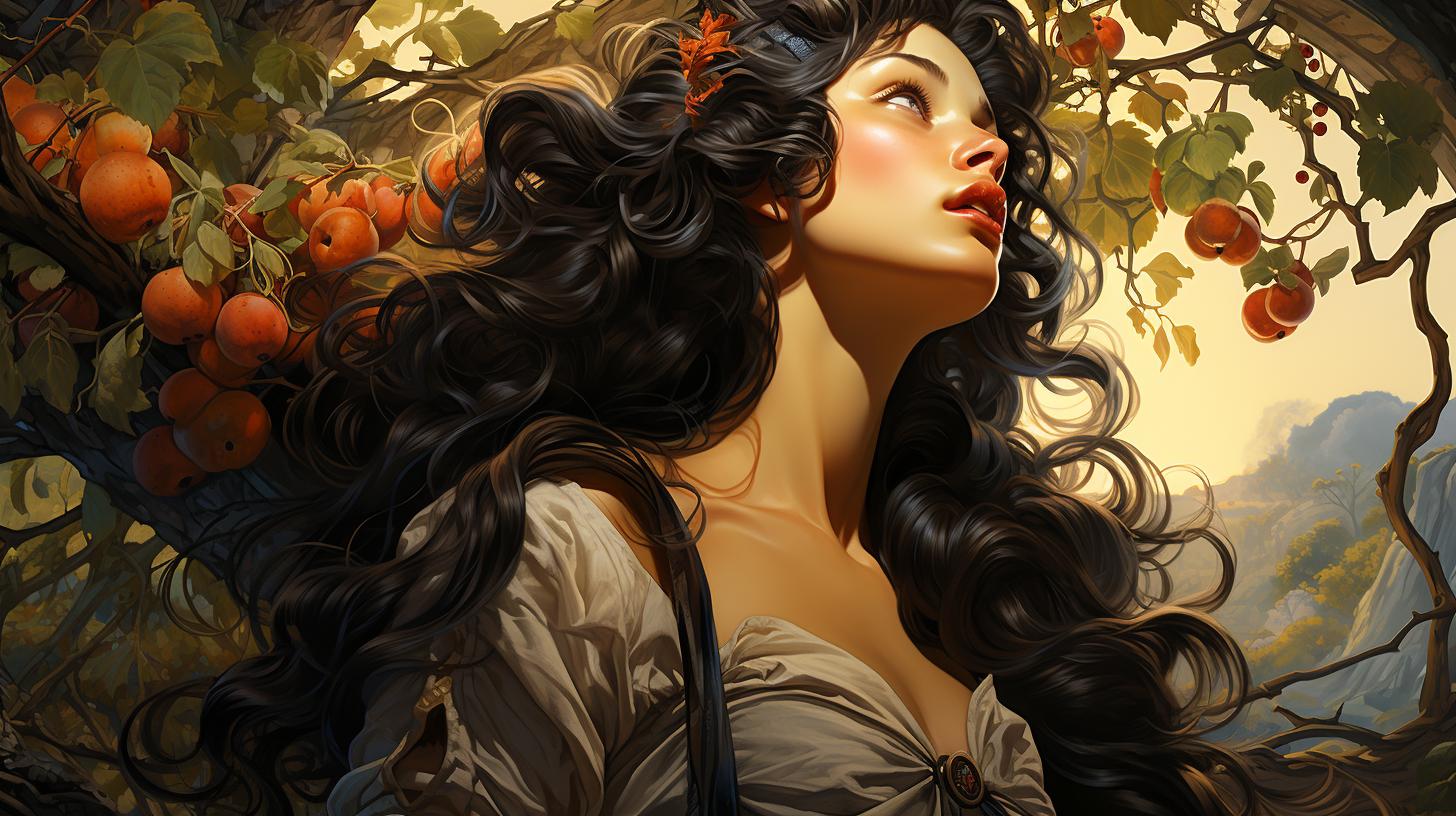Trivia Roman Goddess: Unveiling the Secrets of the Ancient Roman Deity

Trivia Roman Goddess is an intriguing deity in ancient Roman mythology. Associated with crossroads, road protection, and magic, Trivia is often connected to the goddesses Diana and Hecate.
The name “Trivia” itself derives from the Latin word meaning “three roads,” symbolizing her significance. With her triple female form and connections to guardian dogs and the moon, Trivia’s worship took place at crossroads, particularly those associated with the deceased.
This article explores her origins, powers, worship practices, and associations with other Roman goddesses like Luna and Proserpina. Journey into the captivating world of Trivia Roman Goddess and discover her enigmatic cult and symbolism.
Overview of Trivia Roman Goddess
Welcome to the intriguing world of Trivia Roman Goddess. In this section, we will delve into the essence and significance of this mythical deity in ancient Roman culture and mythology.
Trivia, also known as the goddess of crossroads, road protection, and magic, holds a unique place in the pantheon of Roman gods and goddesses.
Derived from the Latin word “Trivia,” meaning ‘three roads,’ Trivia represented an enigmatic aspect of Roman religion. She was often associated with Diana and Hecate, two prominent Roman goddesses.
With her triple form, Trivia embodied the power and symbolism connected to the crossroads, guardian dogs, and the moon.
Throughout history, Trivia’s worship and adoration were observed in Rome and even extended to Greece, where altars and sanctuaries dedicated to her were erected. The significance of Trivia’s role as a guardian of roads and crossroads is closely linked with her association with dogs, known as guardians and howlers of the moon.
To honor and appease Trivia, offerings were made during nighttime rituals. These offerings included items associated with dogs, such as garlic, hemlock, mandrake, rue, red wine, milk, incense, and black articles.
Trivia’s cult, mentioned by renowned Roman poets like Horace and Catullus, further attests to her importance in ancient Roman culture.
Trivia is not only associated with Diana and Hecate but also forms a divine triad with Luna and Diana, adding to her complexity and significance in mythology.
Tracing the origin and unraveling the captivating history of Trivia Roman Goddess opens a gateway to the enchanting world of ancient Roman mythology. This historical exploration sheds light on the significance and reverence attributed to Trivia throughout the ages.
Origin and Meaning of Trivia
The name Trivia derives from the Latin word “Trivia,” which translates to “three roads.” This epithet reflects Trivia’s essential association with crossroads, symbolizing the convergence of paths and choices.
Trivia in Roman Mythology
Within the vast realm of Roman mythology, Trivia emerges as a prominent goddess with her own distinct characteristics.
She is closely intertwined with the concepts of road protection, crossroads, and magic, acting as a guardian for those embarking on journeys.
Trivia’s role in ancient Roman society elevated her status as a deity to be revered and worshipped.
Her presence was invoked at crossroads, particularly those associated with the realm of the dead, representing the mystical connection between life and death.
Trivia’s Associations with Diana and Hecate
The fascinating interplay of Roman mythology reveals the connection between Trivia and other goddesses such as Diana and Hecate. In certain contexts, Trivia is considered an epithet indicating the triple-bodied goddess, reflecting her multifaceted nature.
As an epiphanic form of Diana and Hecate, Trivia shares their attributes and powers, further amplifying her significance in the pantheon of Roman deities. This association symbolizes the interconnectedness and overlapping domains of these powerful goddesses.
Unveiling the historical threads that intertwine Trivia Roman Goddess with other mythical figures enriches our understanding of her role and symbolism within Roman culture.
Powers and Aspects of Trivia
The powers and aspects of Trivia Roman Goddess are encompassed by her role as a guardian and wielder of magic. Let’s explore the different facets that make Trivia a fascinating deity.
Trivia’s primary role is that of a guardian, particularly of crossroads and roads. In ancient Roman mythology, crossroads were seen as liminal spaces where different realms intersected. Trivia’s presence at these crossroads represented her ability to guide and protect travelers as they journeyed through different paths and transitions in life.
Trivia is closely associated with magic and supernatural powers. Being an epíteto of Diana and Hécate, she shares their magical attributes as well. Trivia is believed to have the ability to perform various magical rituals and spells.
Trivia’s magical prowess makes her a significant figure in Roman mythology and occult practices.
Triple Form and Symbolism
One of the distinctive aspects of Trivia is her triple form, represented as three interconnected female bodies. This triple aspect symbolizes her multifaceted nature and represents her dominion over the past, present, and future.
It also signifies her association with the three roads or paths, showcasing her ability to guide individuals through different choices and life stages. Trivia’s triple form is a potent symbol of her power and wisdom.
As we delve into the powers and aspects of Trivia Roman Goddess, we gain a deeper understanding of her significance in Roman mythology. Her role as a guardian of crossroads, her magical abilities, and her triple form all contribute to the mystique and reverence associated with this enigmatic deity.
Worship and Offerings to Trivia
Trivia Roman Goddess had a significant cult following in ancient Rome, with dedicated worshippers and specified rituals. This section explores the details of Trivia’s cult, the altars and sanctuaries dedicated to her, as well as the appropriate offerings and rituals that were performed in her honor.
Trivia’s Cult in Ancient Rome
The cult of Trivia was well-established in ancient Rome, with devotees who recognized her as a powerful deity associated with crossroads, road protection, and magic. Her cult activities were particularly prominent at crossroads, especially those connected to the spirits of the deceased.
Worshippers would gather at these intersections to pay homage to Trivia, seeking her guidance and protection.
Altars and Sanctuaries Dedicated to Trivia
Altars and sanctuaries dedicated to Trivia were spread throughout Rome and Greece. These sacred spaces were constructed to honor and connect with the divine energy of Trivia. They served as focal points for worship and gatherings, where devotees could come together to express their devotion and seek the favor of the goddess.
Appropriate Offerings and Rituals
When offering reverence to Trivia, worshippers would present various items associated with her symbolic connections. Offerings such as items related to dogs, garlic, hemlock, mandrake, rue, red wine, milk, incense, and black articles were deemed suitable.
These offerings were typically made during nighttime rituals, aligning with Trivia’s association with the moon and the nocturnal realm.
In ancient Rome, rituals dedicated to Trivia often included prayers, incantations, and invocations.
Devotees would perform ceremonies to invoke her presence and seek her blessings. The rituals aimed to establish a deep connection with the goddess, fostering a relationship built on reverence and respect.
The worship of Trivia went beyond mere superstition; it was a deeply ingrained practice in Roman culture, influencing the daily lives of the people. Trivia’s worshippers acknowledged her power and sought her aid in matters related to their journeys, protection, and magical endeavors.
The legacy of Trivia’s cult continues to captivate modern imagination, and her presence can still be felt in contemporary occult and spiritual practices. Throughout history, Trivia’s divine essence has left an indelible mark, reminding us of the mystical power associated with crossroads, guardianship, and the realm of magic.
Trivia and Other Deities
Trivia, an intriguing Roman goddess, holds significant associations with other prominent deities in Roman mythology. Let us explore her connections with Diana and Proserpina and her role as part of the Triad of Goddesses alongside Luna and Diana.
Trivia’s Associations with Diana and Proserpina
In Roman mythology, Trivia shares deep associations with both Diana and Proserpina. While Diana represents the moon and hunting, Trivia adds her dimension as a goddess of crossroads, road protection, and magic.
This conjuncture strengthens the bond between the two goddesses, highlighting their respective domains under different perspectives.
Proserpina, the Queen of the Underworld, also shares a connection with Trivia. As a guardian of the roads associated with the dead, Trivia intersects with Proserpina’s realm of the afterlife and the crossing between life and death.
Together, their influences merge to create a complex and intricate web of mythology.
Triad of Goddesses: Trivia, Luna, and Diana
The Trivia Roman Goddess belongs to a revered triad of goddesses alongside Luna, the goddess of the moon, and Diana, the goddess of the hunt. This Trivia-Luna-Diana triad holds great significance in Roman mythology, symbolizing the three aspects of the moon: the new moon, crescent moon, and full moon.
Each goddess in this triad embodies different aspects of feminine power and symbolism. Trivia, with her triple form, represents the trinity of lunar phases, bringing together the forces of change and transformation associated with the moon.
Luna symbolizes the moon’s serene and ethereal quality, while Diana personifies the fierce and untamed nature of the moon.
This harmonious triad represents the various facets of femininity, forming a well-balanced representation of lunar influence and empowerment within Roman mythology.
To continue reading about Trivia Roman Goddess, explore the fascinating sections that delve into her worship practices, literature references, and her presence in modern popular culture.
Trivia in Literature and Poetry
Trivia, the enigmatic Roman goddess, has left her mark in the realm of literature and poetry, captivating the imagination of writers throughout history.
Mention of Trivia can be found in various Roman poems, reflecting her significance in the cultural and mythological landscape.
Mention of Trivia in Roman Poems
Several renowned Roman poets have made references to Trivia in their works, showcasing her mystical presence and her connection to the supernatural realm. These poetic representations add depth and intrigue to Trivia’s character, making her an enduring figure in Roman mythology.
- One notable mention can be found in the works of Horace, the esteemed Roman poet. In his Odes, Horace refers to Trivia as the protectress of crossroads and emphasizes her association with Hecate, another powerful goddess of magic.
- Catullus, another celebrated Roman poet, also includes Trivia in his writings.
In his poem “Hymn to Diana,” Catullus portrays Trivia as an important deity within the divine triad of Diana, Luna, and Trivia, highlighting her role in the lunar cycles and her influence over crossroads.
Trivia’s Significance in Roman Culture
Trivia’s presence in literature and poetry reflects her broader significance in Roman culture.
As a goddess associated with crossroads, roads, and magic, Trivia held a special place in the hearts and minds of the ancient Romans.
Her depiction as a triple-bodied deity and her connection to dogs and the moon added to her mystique and made her a focal point of devotion and reverence.
Trivia’s cult rituals, performed at crossroads and associated with the deceased, were considered important for ensuring safe travels and protection from malevolent forces.
Furthermore, Trivia’s associations with other powerful goddesses such as Diana and Proserpina further elevated her status within Roman mythology.
The triad of Trivia, Luna, and Diana represented different aspects of the lunar cycle and played pivotal roles in shaping the beliefs and practices of the Romans.
Overall, Trivia’s presence in literature and poetry provides a glimpse into the deep-rooted fascination that the ancient Romans had for this enigmatic goddess.
Through poetic expressions, her symbolism and significance continue to captivate readers and keep her legacy alive.
Trivia in Modern Popular Culture
Trivia Roman Goddess has found her place in modern popular culture, leaving her mark in contemporary books, films, and various spiritual practices.
Trivia in Contemporary Books and Films
Trivia’s mystical and enigmatic nature has captured the imagination of authors and filmmakers, leading to her presence in several works of fiction. She often appears as a powerful and mysterious deity, embodying the divine essence of crossroads, magic, and protection.
These portrayals allow for intriguing storylines and explorations into the supernatural.
Books and novels featuring Trivia Roman Goddess delve into her role as a conduit for mystical abilities, her connections to parallel dimensions, and her involvement in the fates of mortal characters.
These stories intertwine her ancient mythology with modern themes, captivating readers with tales of divine influence and hidden powers.
In the realm of cinema, Trivia has graced the screen in various films, both within the fantasy and paranormal genres.
Her depiction often exudes an aura of mystery and wisdom, showcasing her dominion over roads, magic, and the occult. Through these cinematic interpretations, Trivia continues to inspire and entertain audiences with her mythic presence.
Influence of Trivia in Occult and Spiritual Practices
Within occult and spiritual practices, Trivia Roman Goddess holds significance for those seeking guidance, protection, and connection to the realms beyond. Her association with crossroads and magical abilities has made her an emblem of spiritual exploration and empowerment.
Practitioners often invoke Trivia in rituals and ceremonies to tap into her wisdom and seek her guidance. They believe that she holds the keys to hidden knowledge and mystical transformations, using her influence to navigate life’s crossroads and unlock their inner potential.
Furthermore, Trivia’s triple form and connection to guardian dogs have woven her into modern spiritual symbolism. She represents the interconnectedness of different paths, the balance between light and dark, and the protective nature of loyal companions.
- Seekers of enlightenment and spiritual growth often incorporate Trivia’s symbols, such as three interlinked circles, into their practices.
- Her presence is invoked during rituals associated with divination, astral projection, and harnessing magical energies.
- Devotees may offer items associated with Trivia, such as black candles, incense, and sacred herbs, to honor and connect with her divine essence.
Through these diverse expressions of devotion and exploration, Trivia Roman Goddess continues to influence and inspire individuals on their spiritual journeys.
Frequently Asked Questions about Trivia Roman Goddess
Who was Trivia in Roman mythology?
Trivia was a significant goddess in Roman mythology, associated with crossroads, road protection, and magic. She was often depicted as a triple-bodied deity, representing her connection to the three roads. Trivia’s name originates from the Latin word ‘trivium,’ meaning ‘three roads.’
What were Trivia’s powers and associations?
As a goddess associated with crossroads and protection, Trivia had powers related to guiding travelers, ensuring safe journeys, and warding off evil. She was also believed to possess magical abilities and was associated with dogs, who symbolized guardianship and lunar howling.
Trivia shared attributes and associations with other Roman goddesses like Diana and Hecate.
How was Trivia worshipped in Ancient Rome?
In Ancient Rome, Trivia was worshipped at crossroads, especially those connected to the deceased. People dedicated altars and sanctuaries to her and performed rituals and offerings to seek her protection and favor.
These offerings included items associated with dogs, such as garlic, hemlock, mandrake, rue, red wine, milk, incense, and black articles. Worship ceremonies often took place at night.
What is the significance of Trivia’s triple form?
Trivia’s triple form represents her association with the three roads and emphasizes her role as a deity of crossroads.
It also symbolizes her encompassing nature and her ability to see in all directions, metaphorically suggesting her divine omniscience and power.
How does Trivia relate to other Roman goddesses?
Trivia is closely linked with Diana and Hecate, both of whom were also associated with crossroads and witchcraft. Additionally, Trivia is part of a triad of goddesses, along with Luna (moon goddess) and Diana (goddess of the hunt).
These goddesses interconnect and share various aspects of their roles and symbolism within Roman mythology.











